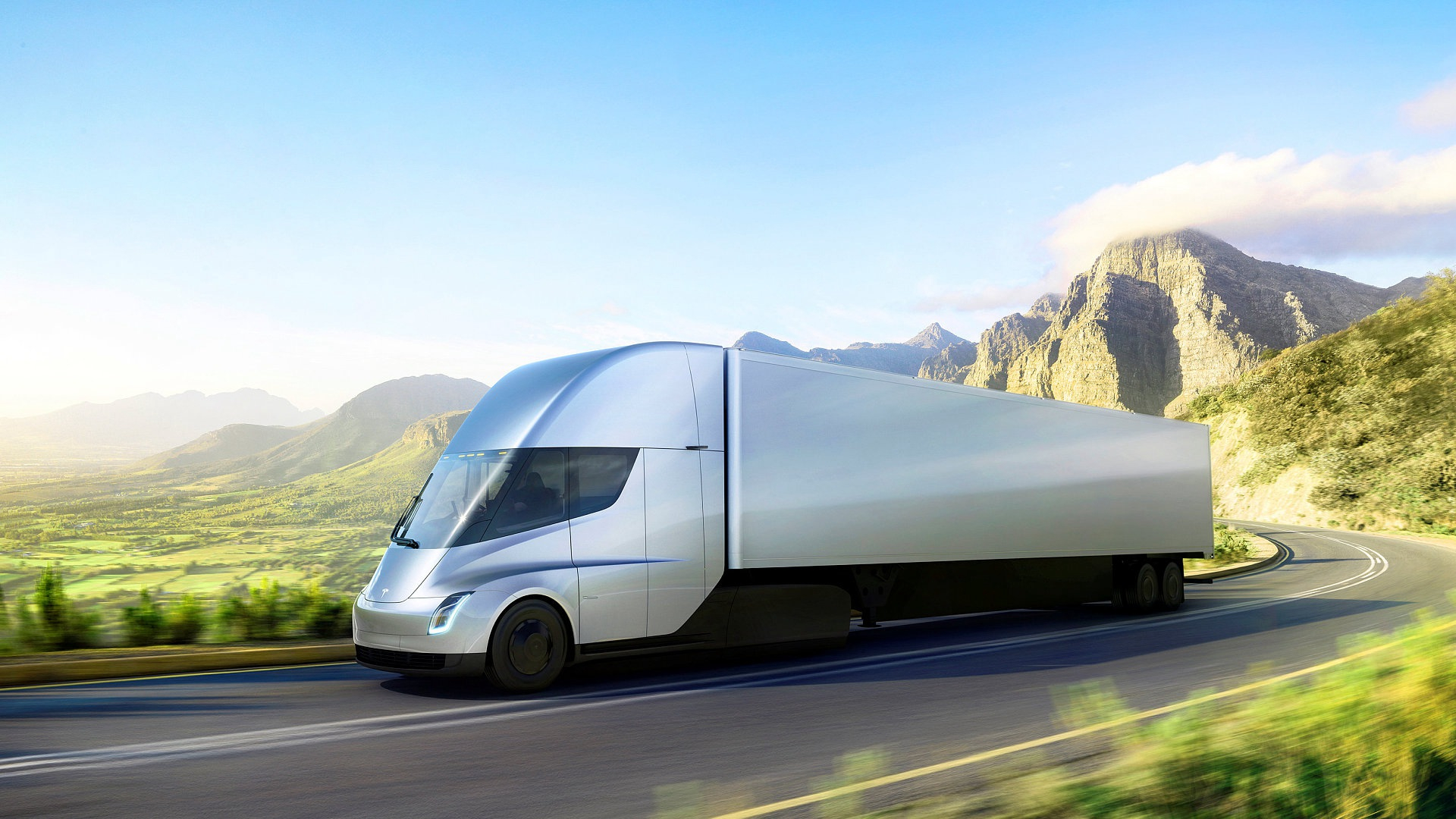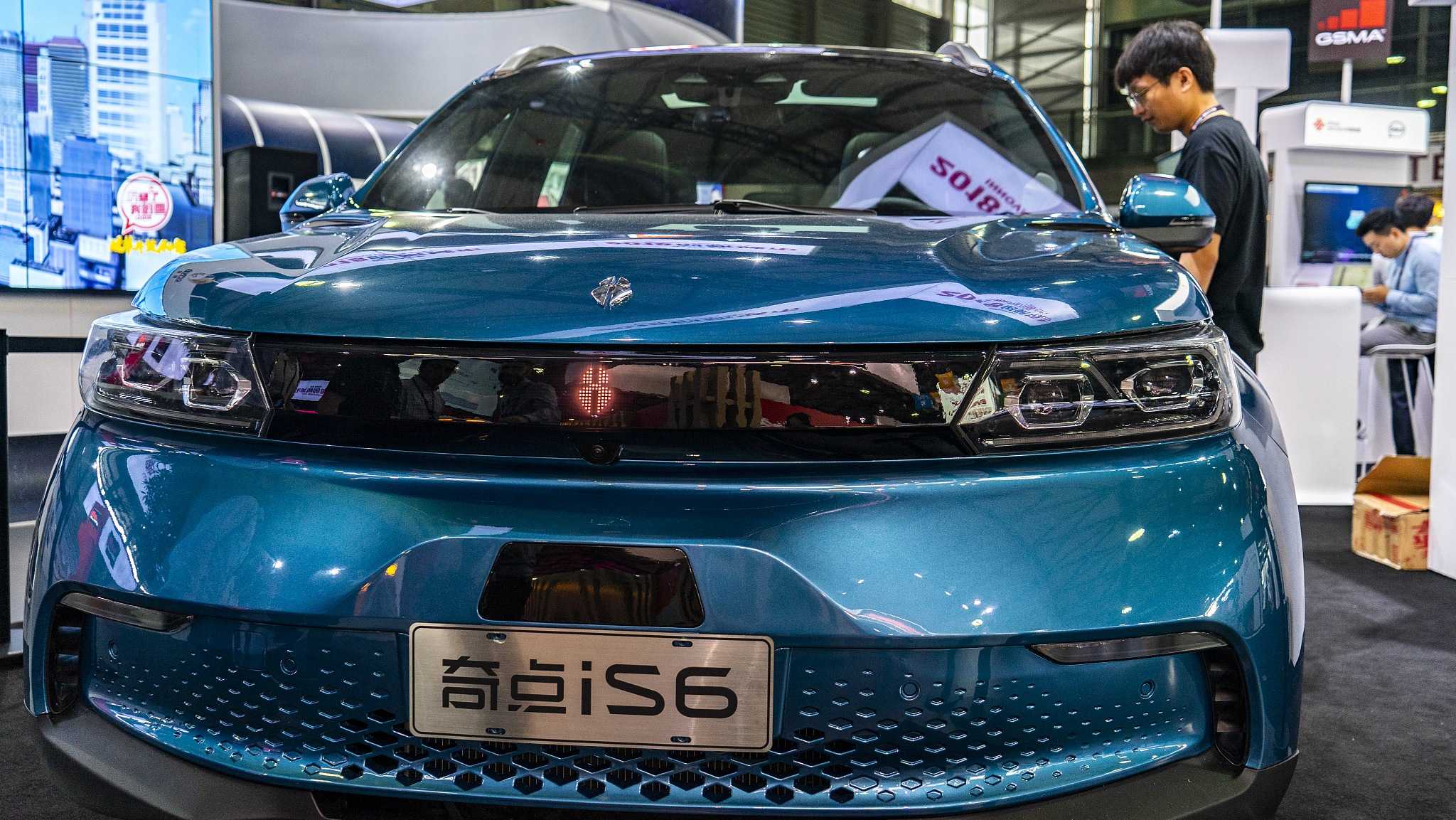
Transport
12:30, 17-Nov-2018
A slew of electric truck plans may deliver the goods for China's EV ambitions
Updated
11:52, 20-Nov-2018
CGTN

The head of electric car startup Singulato Motors has grand plans for the new factory in Hunan Province: Ramp up the annual output to 50,000 by 2020 and ride the crest of a wave for e-truck demand in China.
"We think China's about to see an electric commercial vehicle revolution," Singulato co-founder Shen Haiyin told Reuters in an interview. "In many ways, the EV future might arrive faster with commercial vehicles than passenger EVs."
Singulato, which is due to launch its first electric car by the middle of next year, hopes to open the e-truck plant by 2020. Shen envisions two main models that would appeal to e-commerce and logistics firms: A small intra-city delivery van the size of the Ford Transit or the Toyota HiAce, and a delivery truck under two tonnes.

Singulato's electric car at this year's Mobile World Congress. /VCG Photo
Singulato's electric car at this year's Mobile World Congress. /VCG Photo
The growing momentum for e-trucks could prove to be a tipping point for the electric vehicle, first in China and eventually worldwide - encouraging the mass adoption that Tesla Inc and other EV makers are aiming to give rise to with passenger cars.
"It's a new game," said Bill Russo, head of Shanghai-based consultancy Automobility Ltd and a former Chrysler executive. "The advantages of electric vehicles become apparent when vehicles are deployed into transportation and logistics services fleets."
Impediments that come with electric vehicles, such as the high cost of the battery and cumbersome charging needs, could be erased with a truck fleet to make the total cost of operation cheaper than gasoline or diesel.
Batteries could be designed smaller since routes would be predictable, charging stations and schedules could be deployed more strategically and as trucks are often operated around the clock, economies of scale could be achieved, Russo said.
Foton, part of Beijing-based BAIC Group and China's biggest maker of light-duty trucks under six tonnes, is also looking at expanding further into electric delivery vans, people with knowledge of the matter said.

Foton's vehicle at the assembly line. /VCG Photo
Foton's vehicle at the assembly line. /VCG Photo
The star has won the heart of the car makers
While electric trucks may not have grabbed the public imagination in the same way Tesla's electric vehicles have done, their advent has long been advocated by many auto experts.
Skeptical of the merits of the industry's rush into long-range passenger cars, they believe battery electric technology, because of its heavy weight and the limits on driving ranges, has a more natural home in short-haul trucks. That's particularly so for intra-city delivery vans and trucks plying routes that are pre-determined or at least predictable.
Last year, the number of electric light-duty commercial vehicles - both all-electric and plug-in hybrids - sold in China was roughly 200,000, about six percent of the market for trucks under six tonnes.
Nissan Motor Co, one of the first global automakers in China to develop an e-truck line-up through its venture with Dongfeng Group, believes that demand for light-duty e-trucks will quadruple in four to five years. Its joint venture, Dongfeng Motor Co Ltd, is aiming to lift its electric commercial vehicle sales six times to 90,000 by 2022.
Nissan's partner Renault SA is also on the case. Its new venture with Brilliance China Automotive Holdings Ltd plans to launch three electric delivery vans in two years, starting next year.
Warren Buffet-backed BYD and Geely also have some electric trucks and vans on the market, although volumes are still quite small.
Growth in e-trucks fits hand in glove with efforts by Beijing and Chinese local authorities to promote electric vehicles - both to jump-start a domestic auto industry that lags global rivals in internal combustion engine technology and to combat smog - a constant source of public discontent.
Source(s): Reuters

SITEMAP
Copyright © 2018 CGTN. Beijing ICP prepared NO.16065310-3
Copyright © 2018 CGTN. Beijing ICP prepared NO.16065310-3